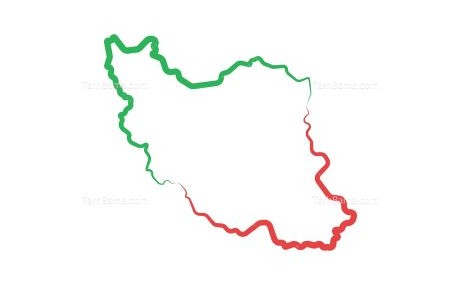
By Ali Salehabadi,
Managing Director of Setare Sobh daily- Iran
TEHRAN: We live in unusual times, unlike any other period before. The question is: why are we stuck in this situation? The answer is one word: governance. This problem is not just about the current government, but all past governments have played a role in creating today’s conditions.
Those who created the current situation have now turned into claimants and demanders. The country’s problems come from idealistic, emotional, and slogan-based governance, aggressive foreign policy, and other such issues. This has pushed the idea of development aside and replaced it with ideology.
The book The Art of War, written by the Chinese strategist Sun Tzu 500 years before Christ, is mandatory reading in the US military. Sun Tzu, who was a soldier himself, warned against military involvement in politics and the economy. He said that when the military enters these areas, national security is at risk. This has happened in our country — the military is now involved in both politics and the economy. As the parliament speaker admitted, this led to us being caught off guard in the 12-day war, where the enemy struck at our “eyes and brain.”
Sun Tzu also taught something important about foreign policy: fighting an enemy 100 times is useless — the real goal should be to tame the enemy, because taming and making peace costs less than war and sanctions.
Former Chinese President Jiang Zemin once told Iran’s ambassador in Beijing: “You are fighting America’s horns; we are drinking from its udder. Which is better?”
The Japanese told Iranians: “After America bombed us with nuclear weapons, we realized we couldn’t win a war with them. Instead, we conquered America through industry and humiliated them by showcasing Japanese products.”
Former Malaysian Prime Minister Mahathir Mohamad said something similar: “You are fighting America’s horns; we are drinking from its udder. Which is better?”
China’s communist policy toward America has always been about flexibility, compromise, avoiding war, and entering the US market. In 2000, China’s per capita income was about $200 — less than Iran’s at the time. But with this policy of compromise, China’s per capita income has now reached $11,000, lifting 700 million people out of poverty. Could they have achieved this if they had fought America?
In 1978, a year before Iran’s revolution, Egyptian President Anwar Sadat went to Camp David to make peace with Israel and regain the Sinai Peninsula. When asked why he made peace with a country occupying Palestinian land, he replied: “Egypt cannot fight the 51st state of America, which is Israel.”
These examples show that making peace with America has brought prosperity to some nations. But Iran has trapped itself in a cycle of “Death to America” and “Death to Israel” slogans, which has endangered our position and made life harder for our people. This is now visible in the country’s imbalances.
You can’t sit at the negotiating table with America while shouting “Death to America” and calling for Israel’s destruction. Either don’t negotiate at all, or drop these slogans before starting talks.
One fact we failed to understand was when Trump gave Iran 60 days and said: “Either agree or face bombing.” Politicians should have realized that suspending uranium enrichment could remove the threat of war and sanctions, keeping the huge investments in the nuclear industry for future generations. If an agreement had been reached, the nuclear sites at Fordow, Natanz, and Isfahan could have remained intact.



